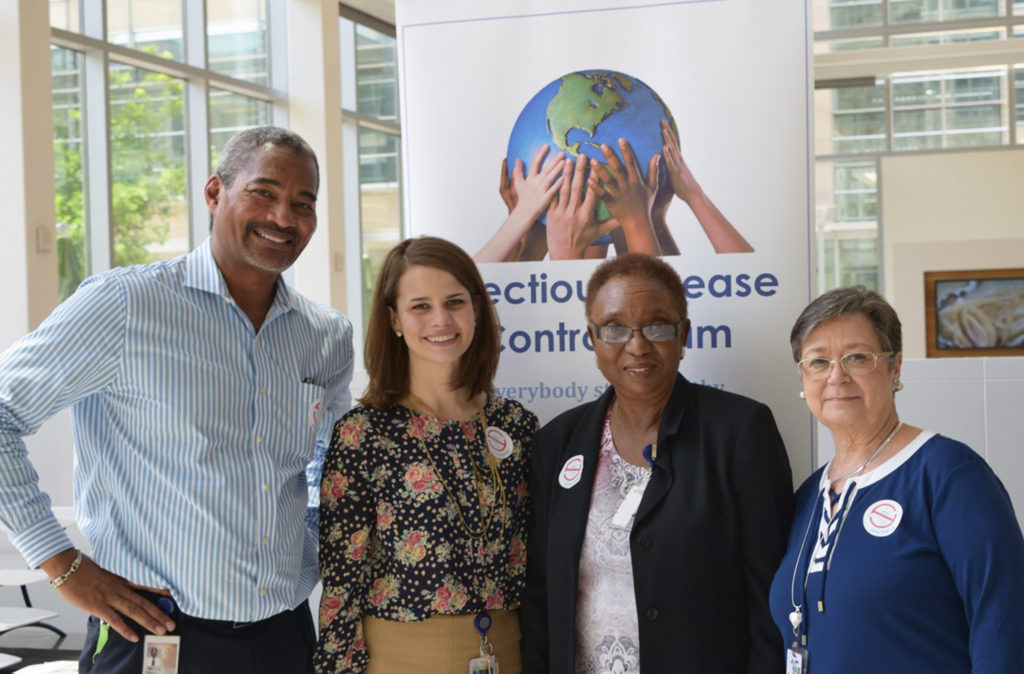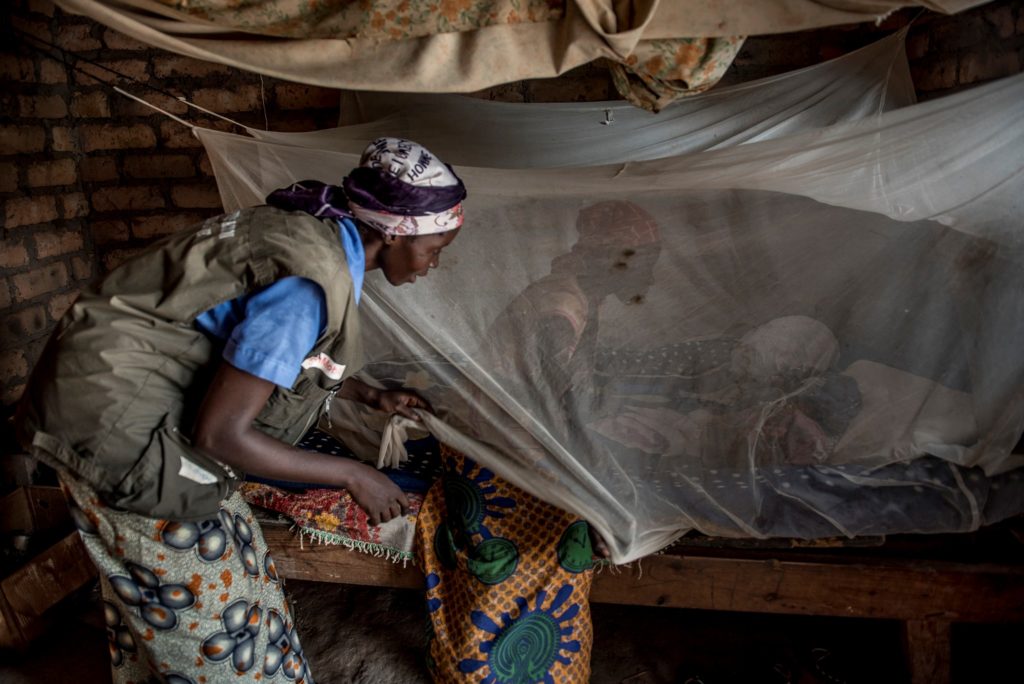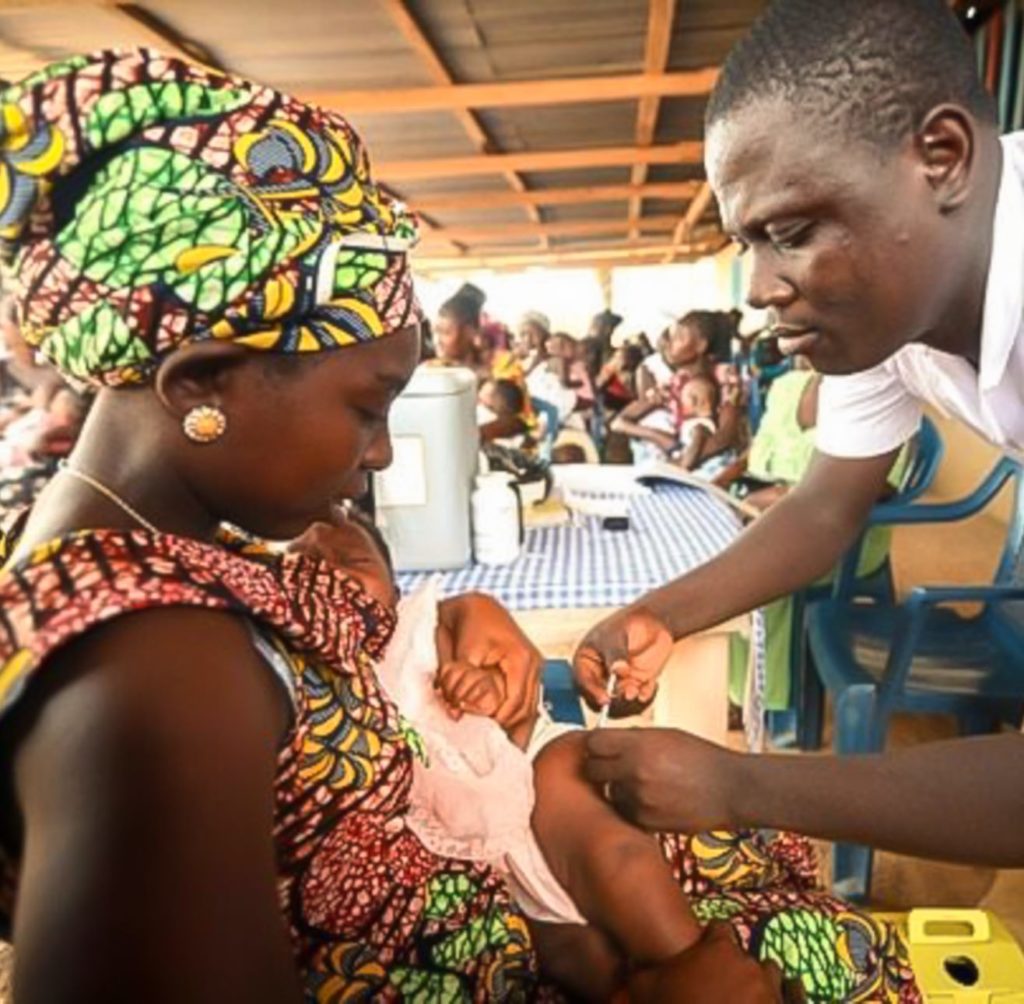
While death and infection rates have drastically declined since 2000, thanks in part to integrated efforts by government, business and civil society, malaria is remarkably resilient. The mosquito-borne illness has been eliminated in many countries – like the U.S. – yet for millions of people around the world, it continues to be a daily challenge.

Dr. Vicki Weldon, ExxonMobil’s Global Medical Director
Experts like Dr. Vicki Weldon, ExxonMobil’s Global Medical Director, have been part of a broad and sustained effort to combat this illness. Dr. Weldon has spent 25 years with the company and has seen the progress, as well as the challenges, that communities continue to face.
Through ExxonMobil and the ExxonMobil Foundation’s work with local nonprofit partners and international initiatives, as well as the company’s workplace malaria control program, more than $170 million has been invested over the past two decades, helping to provide communities with millions of bed nets, diagnostic kits and antimalarial treatments. The company has also supported the training of more than 750,000 health care workers, expanded educational opportunities for doctors in affected communities and advanced medical research on malaria. Combined, these efforts have benefited more than 125 million people.
Combating malaria underscores the importance of public health systems and public-private partnerships around the world, something made even more imperative by the COVID-19 pandemic.
Today, Dr. Weldon shares her perspective on the ongoing global fight against malaria, what it will take to see success in the future and how the private sector plays a role in global health outcomes.
As the company’s global medical director, I oversee all aspects of ExxonMobil’s MOH department, which includes infectious disease control, clinical work and industrial hygiene. I also collaborate with our colleagues in the ExxonMobil Foundation to help identify where our charitable investments can make a difference in communities where we operate.
MOH plays a key role in the company’s health and safety culture. Our mission is to protect and promote the health of our workforce, and we do that through the latest in science, technologies and risk-based occupational health practices.
Our MOH team – composed of physicians, nurses and industrial hygienists – specializes in the unique health risks of workers and is dedicated to supporting ExxonMobil’s business and workers around the globe. That often extends beyond the ExxonMobil workforce and into the communities where we operate.
Members of ExxonMobil’s Medicine and Occupational Health (MOH) team.

Our approach has evolved as medical innovations advance and awareness grows. Over the years, we’ve witnessed a number of breakthroughs – the advent of the first-ever vaccine against malaria, new treatments, a better understanding of how frontline antimalarial medications work and a field test for preventive drug compliance. I’m proud to say that ExxonMobil has played a role in each of those developments.
But the fundamentals are the same. Sleeping under a long-lasting insecticide-treated bed net offers protection against mosquito bites and therefore malaria infection. In 2000, only 2% of Africans used bed nets. Today, nearly 60% of the African population sleeps under a net, according to the World Health Organization. This public health intervention, made possible by the combined efforts of many organizations, may have made the single largest impact in reducing the burden of malaria in Africa.
Sleeping under a long-lasting insecticide-treated bed net offers protection against mosquito bites and therefore malaria infection.

Our employees are ExxonMobil’s greatest assets, and keeping them and their families healthy is essential. Where it’s needed, our workplace malaria control program offers free education, prevention and treatment services at facility clinics. Since 2000, I am proud to say we have averted over 2,000 workforce cases of malaria.
The program began two decades ago, during the construction of a pipeline from Chad to Cameroon. At the time, many employees missed work because they or their family were sick from malaria. In response, we established a prevention and treatment program. But mosquitoes aren’t confined to worksites. It soon became clear that the best way to protect our employees and contractors was to invest in their communities.
The program continues to play a role today, extending malaria services and other services beyond employees to benefit certain communities, especially in areas where health systems are fragile or difficult to access.
Many organizations have a role to play in ending malaria. It is essential that the public and private sectors, nonprofits and academic communities continue to work together.
We apply our unique private-sector expertise in helping our partners solve complex challenges. This includes supply chain consultations on bed net distribution, medical research and collaboration with academia, program monitoring and evaluation assistance, raising malaria prevention and treatment awareness through marketing campaigns and educating policy makers.
Through the ExxonMobil Foundation, we partner with leading organizations that work on the front lines in the fight against malaria, such as Grassroot Soccer and Africare. The ExxonMobil Foundation also supported the development of Harvard’s MalariaX free online course, which has reached thousands of people around the world.
As a new disease, COVID-19 has certainly presented a significant challenge to the medical community and society as a whole.
Many of the fundamentals of disease control are, in fact, the same in both malaria and COVID-19. It comes down to the basics of ensuring public health – monitoring, proper reporting, quality data collection, breaking the cycle of transmission, rapid diagnosis, biomedical research and innovation leading to appropriate and affordable treatment. The vaccine against malaria is considered groundbreaking: It’s the first vaccine ever developed against a parasite for humans. On that note, the advent of vaccines against both COVID-19 and malaria promises to help put an end to these epidemics. But vaccines are only effective if people are immunized with them – the key to success will be in widespread distribution and application.
Fighting infectious diseases like malaria is a lot easier in a well-functioning health system, and that’s why MOH and the ExxonMobil Foundation partner with a variety of organizations that help strengthen local health systems.
The vaccine against malaria is considered groundbreaking: It’s the first vaccine ever developed against a parasite for humans.

Dr. Flaminia Catteruccia, a molecular entomologist at Harvard, has conducted amazing research on the mosquito. Her work shows us that understanding the behavior of the mosquito might be key to breaking malaria transmission. After all, the mosquito doesn’t cause malaria; parasites that mosquitoes carry do. That’s why Dr. Catteruccia is researching ways to rid the insects of malaria parasites, making a mosquito bite nothing more than an itchy annoyance. As she says, “We’ve been trying to get rid of mosquitoes forever to stop malaria, but maybe we don’t need to.”
This blog was originally posted on ExxonMobil’s Energy Factor. For over 20 years, ExxonMobil has been working to end malaria and strengthen community health systems. Learn more about ExxonMobil’s efforts in the fight against malaria in this timeline.